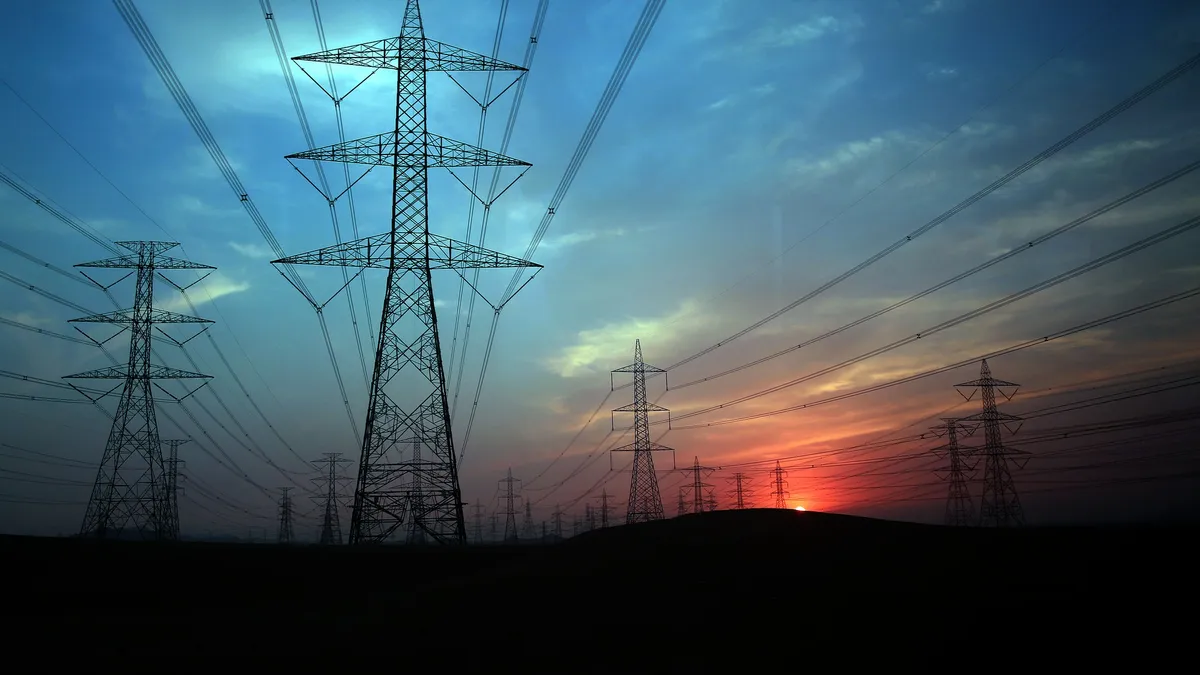Dive Brief:
- A new report from the Rocky Mountain Institute (RMI) identifies seven critical areas of the energy sector, "where solutions are within our reach, but not yet at hand," that will require intervention for the world to meet the United Nations Paris climate goal of limiting climate change to below 2 degrees Celsius.
- Those challenges include reimagining urban environments, enhancing transparency surrounding emissions, and tripling the pace of energy efficiency improvements.
- Few nations are meeting their Paris targets, and the United States exited the agreement under President Trump's administration. RMI's report concludes top-down government policy actions will not move quickly enough and other actors must step up.
Dive Insight:
Tripling the rate of energy efficiency improvements is a tall order, particularly with recent analysis from the International Energy Agency showing it heading in the wrong direction.
"The world is badly off track from what is needed to achieve the Paris Agreement goal," RMI noted in its report, "Seven Challenges for Energy Transformation."
"Current models and efforts are not on track to meet the Paris commitments," RMI managing director Lena Hansen told Utility Dive. "Doubling down on what we're currently doing is not sufficient to solve the problem. What we need to do is together take a step back and think differently about the system. Rather than redirect it, how do we take it apart and put it back in a different way."
Instead of national governments driving the solution, RMI's report calls for "bold and decisive actions" on the part of citizens, corporations, philanthropic institutions, sub-national leaders, regulators, and policymakers.
The need for energy efficiency improvement is one of the more important challenges, said Hansen. "Tripling energy productivity is daunting to say the least, but we think it is what needs to happen," she said.
In the United States, the Trump administration has worked to slow, hinder or roll back rules related to appliances, light bulbs, vehicle efficiency and more.
"We've seen countries become extremely focused on trade, immigration, economic security, such that it's not at all clear to us we can rely on national-level government policy to drive changes we'd need," Hansen said.
But while an all-hands approach to climate change is required, "governments are going, by necessity, to play a critical role," Neal Elliott, senior director of research for the American Council for an Energy-Efficient Economy, told Utility Dive.
"Governments are going to have to work to send appropriate signals to the marketplace, whether to individuals or companies, that they need to get serious," Elliott said, noting that 27 states have set efficiency targets.
Elliott said it is still possible to meet the Paris target, "with a number of caveats."
"Energy efficiency is going to be an absolute critical factor," he said, adding that by 2050, efficiency could achieve about half of the carbon reductions needed to meet the Paris goals.
"A lot of other decarbonization strategies are ones we're still trying to figure out how to scale, or run into resource constraints," particularly in the near term, said Elliott. "With energy efficiency, are we doing it fast enough? No, but we do know how to do it."
Other strategies where RMI says rapid progress is needed: electrifying via renewables, boosting clean energy technology, making changes to global industry energy use, and energy finance.
Whatever the strategy, Elliott said the role of government would remain significant.
"I don't see anyone else being able to step up and lead," he said. "In the private sector, certainly some companies are stepping out in front, but that does potentially put them at a cost competitive disadvantage. Somehow or another, you've got to have a mechanism by which those market signals need to be sent to all players.













